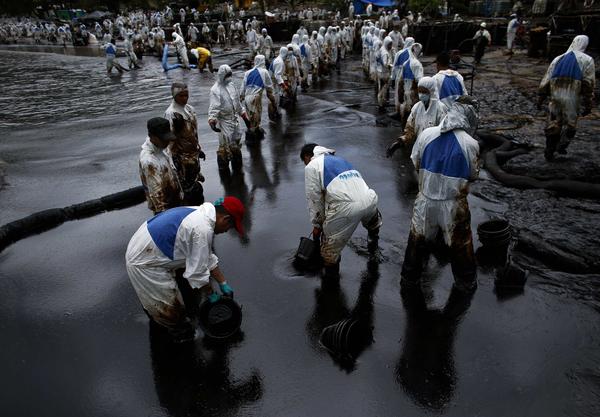
Thai soldiers wearing biohazard suits take part as cleaning operations continue at Ao Prao Beach on Koh Samet, Rayong July 31, 2013. REUTERS/Athit Perawongmetha
reuters.com - by Amy Sawitta Lefevre - July 30, 2013
(Reuters) - An oil spill that has blackened beaches at a Thai holiday island was having an extreme impact on tourism and could spread to the coast of the mainland and affect the fishing industry, officials and an environmental group said on Tuesday.
Tourists were pouring off the island of Koh Samet, 230 km (142 miles) southeast of Bangkok, while soldiers and volunteers in white bio-hazard suits struggled to clear black oily sludge off the white sand.
"We're working to move visitors to other locations if they want to move," Tourism Minister Somsak Phurisisak told reporters.
"I'm very concerned, I didn't think this spill would impact tourism in such an extreme way."
(READ COMPLETE ARTICLE)
Recent Comments